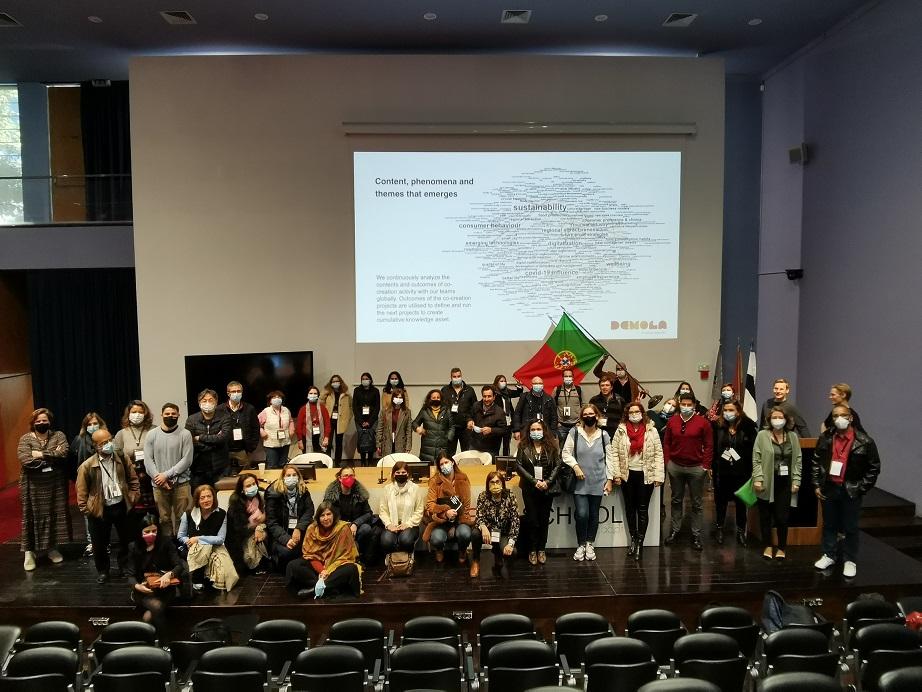
When asked about his feelings at the end of the co-creation process, Emanuel Faria says that the work is not over yet. “The final pitching of the national program is yet to come. During the last three weeks of the project, our team was really getting connected with each other. The final meeting was held in December, we were saying goodbye, but when we got together at the end of February, it was like we never left! It was like we were a family. The team members keep in touch with each other”, explains Faria excitedly.
Faria describes the internationality of the team as the best contribution of the project. Half of his team were Portuguese, and the rest were students from Finland and China. Only one of the Portuguese students was located in Faria’s own polytechnic in Coimbra, others were from Viseu. Faria believes that team diversity, and the fact that people didn’t know each other beforehand, were factors that positively impacted their teamwork.
“I had no expectations for the program. Of course, at first, I was a little worried about how it was going to turn out, but the collaboration was very smooth.This kind of teamwork doesn’t happen in a classroom!” he states.
Faria encourages his colleagues to select international students to their teams. People that are not familiar with each other beforehand don’t yet have set roles. “We get used to certain kind of education style, to this specific teacher – student relationship at our own school, and all that changes when you go abroad or work with foreign people. For me it was super great to work with people from Finland and China. I think it’s a shame if people won’t use the opportunity to try the projects out with international teams.”

Developing new culture of interaction
Emanuel Faria also mentions that the program has had positive impact on the
cooperation between different polytechnics. Usually, polytechnics and the
various units within them are relatively closed and independent actors, so such
initiatives, as well as increased cooperation between different actors, are
beneficial. He also mentions that co-creation opens new possibilities between
smaller businesses and polytechnics. ”As a co-creation partner, you need to go
to the field talk to different kinds of companies, the small ones. The small companies
don't usually get the same amount of attention in the cooperation between
polytechnics and companies as the bigger companies do.”
Faria has already implemented the co-creation practices in his teaching, as well. He has asked his students more often what they want to learn. In theory-based courses, practical working life projects in cooperation with companies have given more perspective to studying. Faria avoids telling students they’ve done poorly – instead, he is telling them to try out new things and that failing is also valuable.
Emanuel Faria describes his role as facilitator as an “encouraging big brother” who motivates the team to make bold choices and work together.
”In my case, my team and my project had nothing to do with my professional field and what I do. I’m a chef, I teach culinary. The project was related to healthcare and beauty, so it was out of my box. I told my team I was there to support them and kept telling them they were on the right track, doing a good job. I wasn’t there to put any pressure on them. I told them to take their time, since it’s their work, not my project. Our company partner was also very nice, since they didn’t put any pressure on the students about the output, and it made my work very easy.”
Faria says it is not possible to fully prepare for a co-creation process – he says it is essential to trust the process and enjoy the ride, because if you prepare too much and try to answer all the questions right away, you will never be ready for the unexpected twists and turns that will inevitably come. "If we give them [the students] everything in the beginning, they won't be able to pay attention to anything else", he says.
"There are so many surprises, good surprises, that come with this project!”
Share this event with anyone you think would be interested.